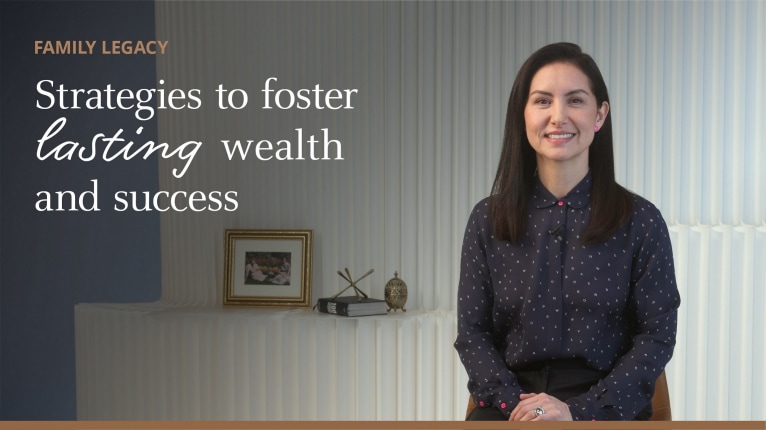Behavioral Finance 8 behavioral science insights that will help you stick to New Year’s financial resolutions

The new year is a great time to make resolutions for better financial habits. Unfortunately, a few weeks after New Year’s tends to be a great time to abandon those resolutions. Before that moment arrives, let’s consider how behavioral science – the study of how emotion and psychology impact behavior – can help us stick to those resolutions for a better financial future.
Your resolutions might be to save more for retirement, create a rainy day (or, perhaps a pandemic month) fund, pay off debt, invest more or grow your kids’ college savings. All worthy goals. The following scientific insights can help you follow through and achieve those goals:
Make it automatic
When decisions are automatic, they don’t require the deep thinking, calculations, uncertainty and emotions that lead us into bad habits. Once you identify the financial behavior you want, use the tools from your financial institution to make it as automatic as possible. That way, you make the decision one time and then don’t have to worry or stress about it every pay period. It just happens and you’re on your way.
Plan for the future you want with J.P. Morgan Wealth PlanSM
Having a plan can help you achieve financial freedom. Get started on yours with J.P. Morgan Wealth PlanSM, an award-winning digital money coach in the Chase Mobile app® and chase.com.
Bundle temptation
Most good financial habits require doing something hard right now – not spending money – for the benefit of the future – retirement, college or investment returns. Unfortunately, we feel the pain of that immediate hard thing much more than the pleasure of the future outcome, and that can throw us off track.
The concept of “temptation bundling” – made popular by Wharton Professor Katy Milkman – suggests combining the hard part with a guilty pleasure. You hate exercise but love bingeing Real Housewives? Make a bundle deal to watch two episodes after every workout. The hard thing becomes a trigger for the fun thing: Your good behavior gets rewarded instead of just being a sacrifice for something five, 10 or 20 years from now.
So, whenever you do something with money now for the benefit of the future, give yourself a bit of mindless TV or an afternoon nap or a nice bottle of wine. Maybe every time you put money into your kid’s 529 account, treat everyone to pizza and ice cream. Yum.
Write down the specifics
Studies show that writing down a specific plan for when, where and how we will do something makes it significantly more likely that we’ll actually do it. You want to invest more in technology? Write down who you’ll ask for advice – hint: your advisor – how you’ll do research, by when you’ll make a decision, how you’ll invest how much money and with whom. Put it in your calendar and set a reminder.
Create accountability
You can make those specific, written plans even more powerful by creating accountability. Just letting someone else know about personal commitments makes us more likely to achieve them. You don’t have to share all the details, but even saying “I’m going to invest more this year” and “Check in on me in a few months” has real impact. It provides external peer pressure: It’s easy to excuse yourself to yourself, it’s much harder to let down someone you respect.
Your JPMorgan Chase financial advisor is the best person to share your financial resolutions with, but a friend or family member can work, too.
Break it down and be proud
Most financial goals are big concepts: Pay for college, secure retirement, provide for the next generation, support the community. It can be easy to get frustrated and give up on such goals because they are dauntingly large. We’re more likely to achieve such big ambitions if we break them down into small, doable steps. Don’t burden yourself with “securing your retirement,” instead “invest $50 more per week.” You can do that, easily, and it feels good when you do, motivating you to continue. Make a plan with simple steps and appreciate the progress you make. Don’t be obsessed with or stressed out by the big picture. Instead, celebrate that each step is a victory along the path to your financial goal.
Don’t follow the herd
Everyone tries to lose weight, eat better, exercise more and spend less after New Year’s. It’s much easier to identify with those who then failed and gave up – and posted about it on social media – than it is to hang with successful resolution-ers. It’s best to ignore how others are doing and focus on your own progress. Your goals are unique and personal, and your journey is your own.
You don’t have to be perfect
Whether it’s a missed workout, a late night snack or spending too much money one month, resolution lapses are okay, normal and expected. Don’t let them detract you from your goals or signal failure. Setbacks are part of the process. Cut yourself a little slack. If you miss one target, don’t give up. You’re doing better than if you hadn’t started along this path and there’s still a long, successful road in front of you.
Have fun and embrace the emotions
When designing resolutions, we shouldn’t just rely on obligation, discipline and hitting certain numbers. Those building blocks crumble under the pressure of real life. Instead, build your resolutions upon the positive emotions of what you’re trying to achieve. Infuse joy, purpose and meaning into your new habits. Then they become something you look forward to. You don’t have to put aside money, you get to invest in a better future for yourself, your family and your community. These aren’t burdens, they’re opportunities – not just to grow an account balance, but to have real, meaningful impact on the lives of those who matter to you.
Congratulations! 2025 is going to be a great year for you.
Invest your way
Not working with us yet? Find a J.P. Morgan Advisor or explore ways to invest online.
Jeff Kreisler
Head of Behavioral Science, J.P. Morgan Private Bank
Head of Behavioral Science, J.P. Morgan Private Bank
Jeff Kreisler is Head of Behavioral Science for J.P. Morgan Private Bank and Founding Editor of PeopleScience, a thought-leadership platform for applied behavioral science. Jeff’s second book – "Dollars And Sense: How We Misthink Mo ...More



